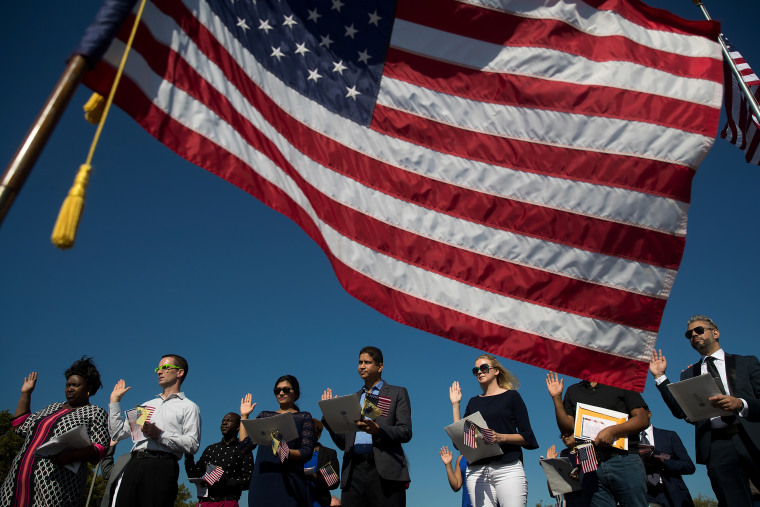Election season is already upon us and the passions of our tribal politics are rising to a full boil. Just this week, West Virginia Senate candidate Don Blankenship garnered nearly 20 percent of the primary vote after his ridiculous, slanderous broadsides against Mitch McConnell and Washington dominated coverage, while Ohio gubernatorial candidate Mike DeWine tweeted #LockHerUp at one of his opponents. We’re once again facing the frustrating prospect of watching our candidates’ debates get hijacked by the angriest and loudest voices in the room.
To prevent this from becoming reality, we need a conscious effort to restore civility, even as it becomes increasingly difficult. But this effort is valuable because the stakes have seldom been higher.
But how do we get there? And what can civic-minded Americans do to help?
We can start by acknowledging what it means to embrace civility and civil discourse — an essential component of our American system of democracy. A functioning government is predicated on the ability of lawmakers to work together, find common ground and make progress. Beyond the halls of Congress, a productive civil discourse among voters — and the legitimacy that healthy debate can convey on election results — ensures a credible transfer of power.
Too many Americans refuse to entertain the possibility that an opponent might be a decent human being despite being wrong about an issue.
Restoring civility doesn’t mean that Americans must agree on the issues, or that we must avoid vigorous debate. Civility does not mean quiescence or milquetoast appeasement. But personal attacks and scorched earth rhetoric, not only degrade democratic norms, they are often counterproductive, poisoning the culture without advancing the cause.
Civility also means having empathy for your fellow Americans. Too many Americans refuse to entertain the possibility that an opponent might be a decent human being despite being wrong about an issue. So instead of conversations that might change minds, we reduce our debates to toxic confrontations. We have to do better and that will require a bipartisan effort.
For liberals, it’s important to acknowledge that some conservatives have come to see calls for “civility,” as a code word for them to shut up, while others see calls for a more civil discourse as a sign of weakness or lack of conviction. For conservatives, it will be imperative to adopt a new approach and reject the combative model set by President Donald Trump — substituting swagger, name calling and insults for rational argumentation.
Instead of conversations that might change minds, we reduce our debates to toxic confrontations. We have to do better and that will require a bipartisan effort.
Next we can find ways to break out of our bubbles and come together. A few weeks ago, more than 35 states took part in the National Week of Conversation with events that put civil discourse at the forefront. The goal of the week was to bring Americans together to sit down and have productive, healthy conversations about some of our most divisive issues: free speech, immigration, the economy, race, guns, responsibility, and more. Charlottesville — the site of last year’s violent white supremacy rally that killed a counter-protester — took part in an event featuring dozens of Americans gathering to focus on how to bridge divides. Discussion groups like these are an important opportunity to find common ground.
The goal of the National Week of Conversation was to spark a movement encouraging Americans to find ways to better understand someone whose views differ from your own. So the final way to get involved is to personally reach across the aisle. Whether it’s your uncle, your in-laws, or your neighbor, now is the time to sit down and find a way to build consensus. The nonpartisan National Institute for Civil Discourse has also developed a discussion guide to get these conversations started. Our tip: try to give your discussion partner the presumption of good will, and enter this conversation with an open mind.
Too often, calls for civility are shelved in the heat of battle, occasionally with the defense that passionate engagement or authenticity requires incivility.
We can all do better. Too often, calls for civility are shelved in the heat of battle, occasionally with the defense that passionate engagement or authenticity requires incivility. Not surprisingly we see debates over emotional and divisive issues like guns, abortion, race, or the Trump administration quickly spiral into bitter recrimination and personal attacks that drown out more substantive discussions.
Calling people with whom you disagree “bigots with blood on their hands” is not likely to bridge the political divide or lead to meaningful change. Similarly, attacking the motives and character of teenagers who experienced a traumatic school shooting does little to improve the image of gun rights advocates.
Democracy relies on people being willing to engage in the marketplace of ideas. But this can only happen if we can relearn how to listen to one another, work together and use our words to persuade, rather than divide.
Charles J. Sykes is a former talk show host, conservative commentator, and the author of "How the Right Lost Its Mind." Carolyn J. Lukensmeyer is the Executive Director of the National Institute for Civil Discourse.
